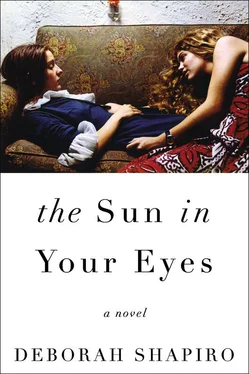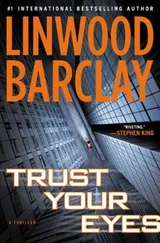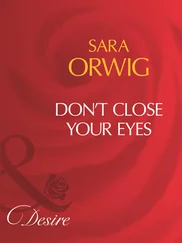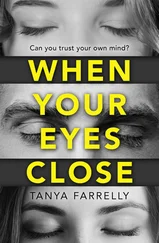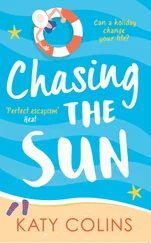Lee rang the buzzer as I was getting a few toiletries together. Andy let her up, and part of me wanted to stay in the bathroom forever and just listen to them.
“Andy,” I heard her say by the door. And it was so much at once: greeting, apology, request, demand, past, and present.
“It’s good to see you, Lee.”
I gave them time for what might have been an intense hug before calling out, “I’ll be right there!” and heading into the hallway, ready to go.
“This is such a nice place you guys have,” she said.
I thanked her but didn’t ask if she wanted to look around. Something had already shifted since I saw her at the diner, when I’d wanted to have her over, to show off to her. But Andy offered her a tour. He took her from the kitchen into the living room, and she complimented the ways we’d filled the space. The teak sideboard Andy’s parents had passed down to us, a marble and brass lamp we’d bought one weekend in Cold Spring, an old framed mirror. Furnishings that conveyed intentions, building a life together. Through her eyes, though, I saw them as an arrangement of props. Staged domesticity.
Andy didn’t ask her about the last few years, and she didn’t offer him details. Maybe it was understood that I’d already let him know. Maybe neither of them cared, in the sense that it didn’t matter to them; they would always just pick up wherever they had left off. Or maybe I was reading too much into it and each of them wanted to get this over with and get moving. Andy asked Lee if she’d like a cup of coffee and she said no thanks, she’d had one earlier and didn’t want to get overcaffeinated. Everything was smooth, polite, and strange. The way Lee and Andy said goodbye. Even the way Andy and I said goodbye. A quick kiss before he pulled away.
“Call me from the road?”
I nodded.
“Good luck.”
And then Lee and I were in the elevator. An old contraption, with a door you had to pull, walls thick with decades of paint. Taking it always seemed like a bit of a risk, and maybe we should’ve used the stairs, I said to Lee. It was all I could think of to talk about just then. She went along with it — trying to read a name someone had etched into the latest coat of taupe — until we got to the lobby.
“So the car’s a few blocks away. Street parking isn’t easy around here.”
“I should’ve said so. You could’ve called me and I could’ve come down.”
“Oh, but that wouldn’t have been half as awkward.”
Her flashing eyes. Her smile. I wanted to forget everything. I wanted to link my arm in hers. To walk down the block like that, leaning together, the camera behind us, watching us go.
I MET LEEthe summer after my freshman year of college and nothing before that seemed to matter much, despite my having scribbled down all the details. I know I had opinions, reactions, beliefs that had guided me to where I was. I’d had what I thought were formative suburban high-school experiences. Slept with a boy who was fixated on a friend of mine, a willowy, emotionally unstable cross-country runner. His infatuation with her baffled me — her taste in and knowledge of just about everything except athletic shoes was far less discerning than his. I thought, If only I could lift the scrim and make him see! But see what? I knew exactly what he liked about her: she ran long distances through forested paths with determination and agility. It didn’t matter what she was thinking, whether she had ever seen My Own Private Idaho or Stranger Than Paradise. Heard of Sonic Youth or Cocteau Twins. To watch her run along the perimeter of the school fields at practice was to want whatever it was she had. That, and she was incredibly moody. When her parents committed her to an in-patient psychiatric program, he asked me how she was doing. I used our mutual concern to get closer to him and I didn’t really see anything wrong with that until I was sitting on his bed, putting my sturdy beige bra back on, wishing I were a better friend. Wishing I were more willowy, more emotionally unstable, so that he would fall in love with me. He offered to drive me home and while the day before I would have jumped at the opportunity to sit in the black bucket passenger seat of his dusk-blue Chevy Nova, I decided to walk. And then I started running, halfway across town back home. As if I could outrun my shame. But what really powered me was pride. I’d done it. With him. I remember thinking I couldn’t have run like that in less supportive underthings.
I had some measure of personality and direction, a solid enough core to resist no less than three offers to join cults my first semester freshman year. By the third time I realized the joke: I was one of those people who was waiting to be approached, to be tapped and told, “Your life is going to start now.” And those people who wait for life to come to them, they do get approached, only they get told something like: “Your life is going to start now and it’s going to be a series of communal breakfasts and questionable sexual encounters with a messianic father-figure.”
By the third time, as soon as the girl sat down next to me on the broad steps of the humanities library, I knew what she was after. The thick paperback she pulled out — Earth on the cover against a glossy black background with a flaming red lozenge hurtling toward the blue planet — confirmed it. But she was striking without trying too hard in her sundress and gray sweatshirt and her sunglasses, which made me think she was part of a group I should want to belong to.
“This is a good spot for reading.” Her manner was laid-back and content. She possessed a secret knowledge.
“Yeah, it’s nice.”
“Not that anyone aside from us students reads much of anything anymore. All people do now is shop, right?” The hitch in her delivery, the narc falseness of “us students” belied her tranquil conviction. “As if rampant consumerism is going to fill the void created by modern society. It fills the void in the way a candy bar does, satisfying your craving but rotting your teeth.”
“Right.”
“I’m not saying we should go live in the woods, survive on berries, and make our own clothes. It’s not that simple, obviously, but I do think there’s a better way.” She opened her big book and I looked at her shoes — a pair of latticed plastic skimmers you could buy in drugstores, the sartorial line between a certain stripe of style-conscious girl and diabetic septuagenarian. It could have gone either way, but we both knew those shoes, on her, were cooler than mine on me.
On a stained and highlighted page of her tome, an elaborate mathematical formula hovered above an illustration of a wormhole and the bolded words “Sentries of Perception.” She started to explain but her rising enthusiasm muddled her clarity. She apologized. “I know it probably seems like nonsense or bullshit. But I swear, it’s not. It’s complicated, but in the way that, like, breathing is complicated. If you think about everything that goes into your taking a breath, well, it’s obviously incredibly complex. But”—she exhaled—“most people don’t think about it.”
“Right.”
“Listen, there’s this study group I belong to — study group makes it sound like work — it’s more like we have get-togethers over dinner. Maybe you’d want to check it out sometime? I think you’d really like it.”
“Why do you think I would like it?”
“It’s just a really good group of people, trying to live better. Figuring out how to live better, together.”
“Why me? I mean, why out of everyone here, why single me out?” Hostility rose in my tone. “Do you know this is the third time someone like you has come up to me?”
“Someone like me?”
Читать дальше
